Accordingly, a British international market research and data analysis company was recently commissioned to conduct a survey on awareness and access to medical services in cancer care and treatment in Southeast Asia.
The survey was conducted with more than 6,000 people in 6 Southeast Asian countries (including more than 1,000 Vietnamese participants). The results showed that the majority of survey participants were well aware of the importance of early cancer detection.
However, cancer screening rates remain low, access to treatment options is limited, and understanding of treatment options and post-treatment care remains inadequate.
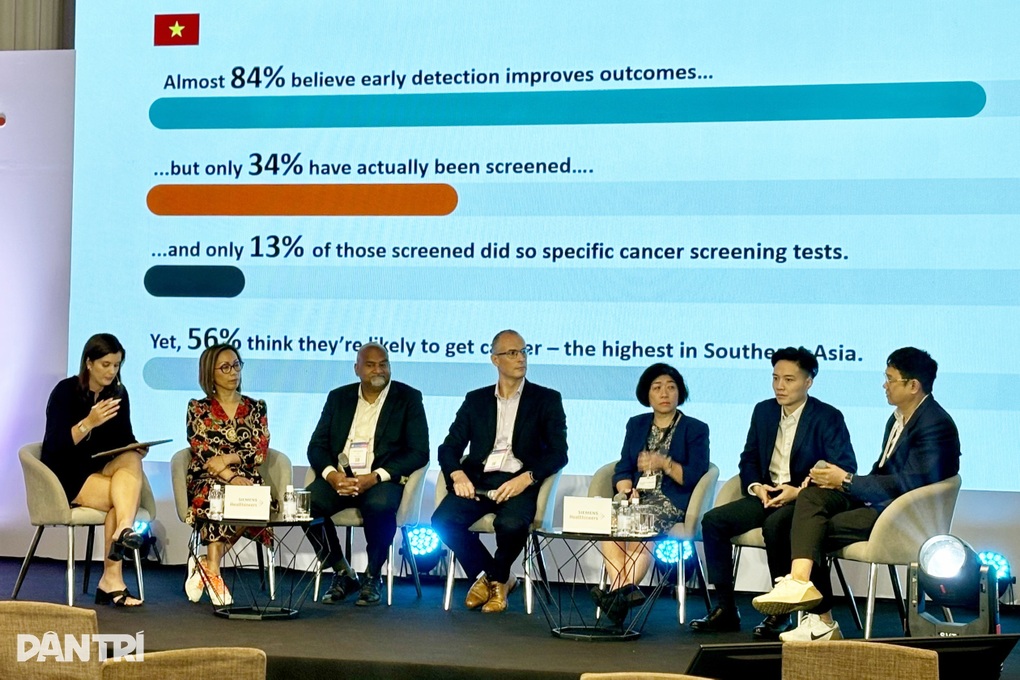
Experts analyze the level of cancer awareness among Vietnamese people participating in the survey (Photo: Hoang Le).
Analyzing the group surveyed in Vietnam, the study found that the majority (84%) believed that early cancer detection plays an important role in improving treatment outcomes, but only 34% of participants had ever been screened for cancer.
Of these, only 13% had undergone specific cancer screening tests.
There were many reasons for not getting screened for cancer given by Vietnamese participants in the study, with the majority saying they “felt it was not necessary”. This is also a common sentiment in other countries in the region. In addition, there were also reasons for the high cost of screening and fear of being diagnosed with cancer (both 22%).
Although more than half of Vietnamese respondents said they believe they will get cancer at some point in their lives, this has not led to them taking proactive preventive measures.
In addition, some people have limited knowledge about modern therapies and access to treatment. In addition, survey participants' awareness of post-treatment care is still low.
Sharing at the seminar announcing the above survey, held in Ho Chi Minh City, Associate Professor, Dr. Tran Thanh Huong, Deputy Director of the National Cancer Institute, said that affordability and accessibility are two key factors in cancer care and treatment.

A leukemia patient received a stem cell transplant in Ho Chi Minh City (Photo: Hospital).
Health insurance (HI) plays an important role in affordability. In Vietnam, 90% of the population has health insurance, but insurance does not cover targeted treatments. In addition, many cancer drugs are very expensive compared to people's income, and are in need of government assistance.
Associate Professor Huong analyzed that many people have the habit of integrating this cancer screening into their annual health check-ups. However, there are currently many options for cancer screening tests, so it is necessary to choose a method that is suitable for both cost and human characteristics.
Regarding accessibility, Vietnam has a guideline on treatment regimens, but needs to continue updating new, modern methods so that people know.
Experts expect that the development of AI can help doctors make more accurate and targeted diagnoses, and advanced interventions will help cancer patients no longer have to undergo chemotherapy in the future.
Source: https://dantri.com.vn/suc-khoe/nhieu-nguoi-viet-khong-tam-soat-ung-thu-vi-so-bi-chan-doan-mac-benh-20250911002550370.htm





![[Ảnh] Chủ tịch nước Lương Cường tiếp Bộ trưởng Quốc phòng Thổ Nhĩ Kỳ Yasar Guler](https://vphoto.vietnam.vn/thumb/1200x675/vietnam/resource/IMAGE/2025/9/11/7f1882ca40ac40118f3c417c802a80da)


![[Photo] General Secretary To Lam chairs the Politburo's working session with the Standing Committee of the National Assembly Party Committee](https://vphoto.vietnam.vn/thumb/1200x675/vietnam/resource/IMAGE/2025/9/11/e2033912ce7a4251baba705afb4d413c)









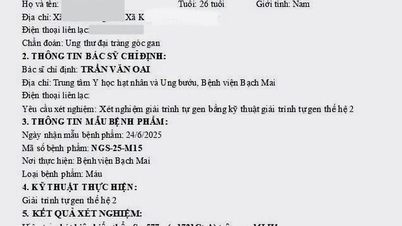






















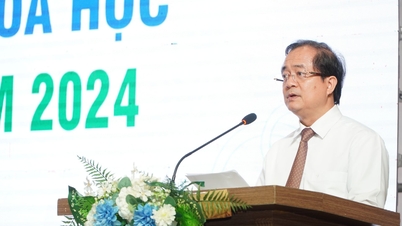









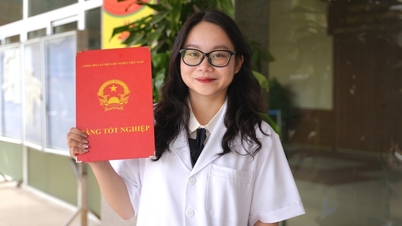






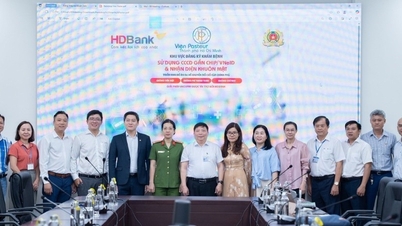

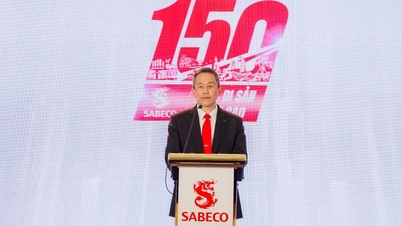

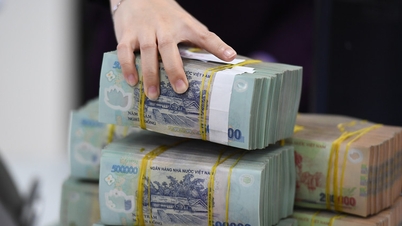










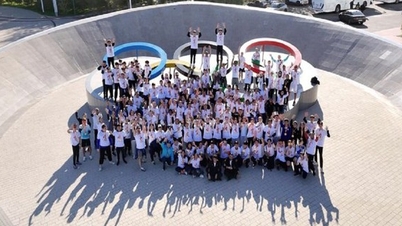




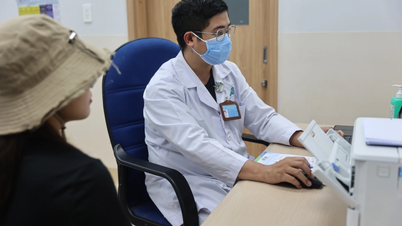



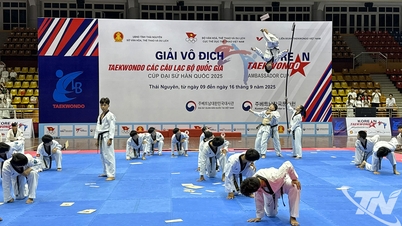


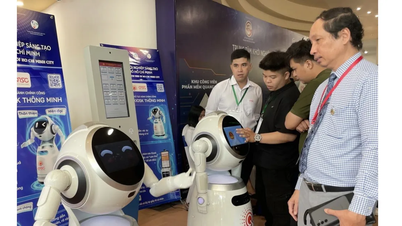








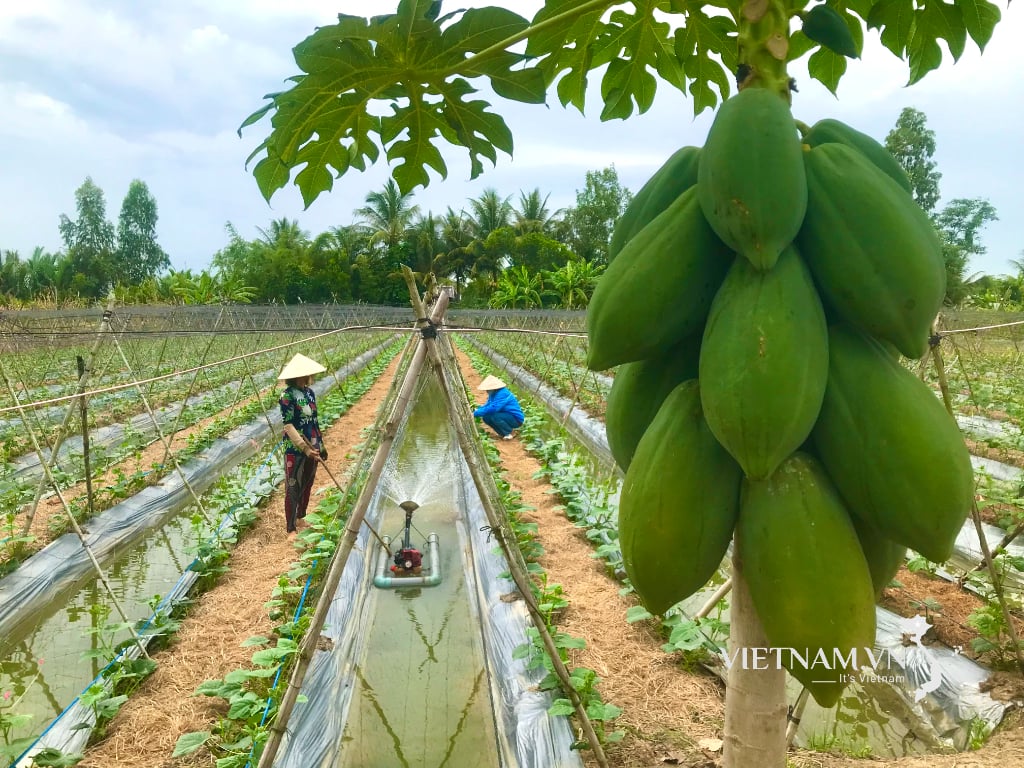
Comment (0)